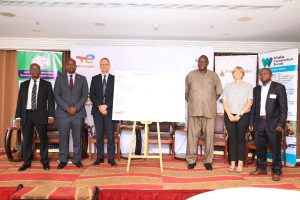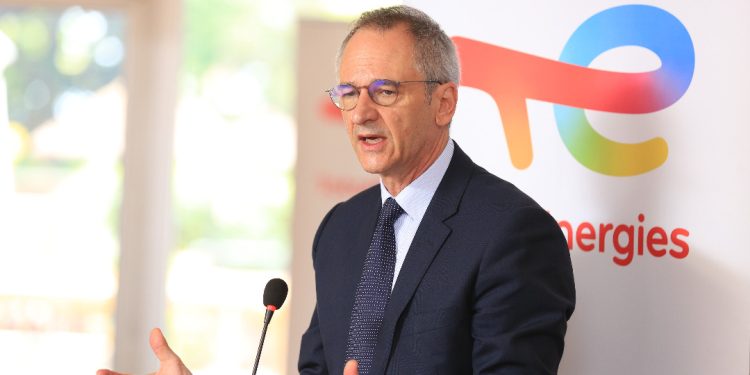TotalEnergies EP Uganda has launched the Tilenga Biodiversity Program, an initiative aimed at protecting and conserving biodiversity in and around the Tilenga project area.
The Biodiversity Action Plan is hinged on four key pillars; Reducing human pressures and strengthening the ecological resilience of the Murchison Falls protected area through enhanced park protection and community-based management such as supporting alternative livelihoods.
 It is also aimed at implementing conservation and restoration measures for forests and their connectivity targeting protection of 10,000 hectares of natural forest threatened with deforestation and restoration of 1,000 hectares of tropical forest, protecting and maintaining the connectivity of habitats in the savannah and in the proximity of the Bugungu Natural Reserve by addressing threats within and around the Reserve and developing schemes to support diversification of livelihoods and reduce dependency on Bugungu Natural Reserve and working with the host community to manage and restore wetlands along the southern bank of Lake Albert through community-based management initiatives.
It is also aimed at implementing conservation and restoration measures for forests and their connectivity targeting protection of 10,000 hectares of natural forest threatened with deforestation and restoration of 1,000 hectares of tropical forest, protecting and maintaining the connectivity of habitats in the savannah and in the proximity of the Bugungu Natural Reserve by addressing threats within and around the Reserve and developing schemes to support diversification of livelihoods and reduce dependency on Bugungu Natural Reserve and working with the host community to manage and restore wetlands along the southern bank of Lake Albert through community-based management initiatives.
Speaking at the launch, Philippe Groueix General Manager TotalEnergies EP Uganda, said as a company, they are mindful of the sensitive context within which they are undertaking their activities.
“We have thus made a commitment to ensure that we implement action plans designed to produce net positive impact on biodiversity,” he noted.
He added that the biodiversity program will ensure a sustainable approach in working with community towards protecting and conserving the ecologically rich area in and around the Murchison Falls Conservation Area.
The approach involves the implementation of conservation and community awareness initiatives, in collaboration with relevant stakeholders, to achieve biodiversity gains above baseline conditions.
The program has been developed in close collaboration with Government agencies and reviewed by international experts, he said.
“We thank all our partners on this program, it is through these joint collaborations and consultations that we have been able to develop a robust plan to ensure that oil development activities are undertaken and can co-exist harmoniously with the environment and biodiversity. Our overall mission is to leave the environment in better condition than if the project had not taken place,” Mr. Groueix added.
The launch was attended by Stephen David Mugabi, Commissioner of Ministry of Water & Environment, who represented Mr Alfred Okot Okidi, Permanent Secretary, Ministry of water & Environment, Dr Joseph Kobusheshe, Director Health Safety and Environment, Petroleum Authority of Uganda; Mr Simon Nampindo, Country Director Wildlife Conservation Society; and Dr Barirega Akankwasah, Executive Director National Environment Management Authority (NEMA).
Other Environment & Biodiversity Conservation initiatives by TotalEnergies EP Uganda
The biodiversity program complements already existing efforts by the company to minimise as much as possible the potential impacts of the project on Environment.
In accordance with the Avoid – Reduce – Compensate principles that underpin its Biodiversity policy, TotalEnergies and has decided to reduce the Tilenga project’s footprint in the in Murchison Falls National Park.
The project’s temporary and permanent installations, including well sites, will take up less than 0.05% of the park’s land area. The number of sites to drill the 140 wells has been limited to 10. These 10 sites have been designed to be as compact as possible, with a minimized visual impact.
TotalEnergies EP Uganda also recently embarked on community-based forest conservation and restoration initiatives such as “Grow A Tree Everywhere” (GATE) which is aimed at growing 100,000 trees in the Tilenga project areas of Nwoya and Buliisa districts.
“We aim to not only implement but demonstrate the achievement of Net Positive Gain on the Tilenga project. We will therefore monitor progress alongside that of the project itself in line with International Finance Corporation (IFC) standards, international and national legislation,” added Groueix.









